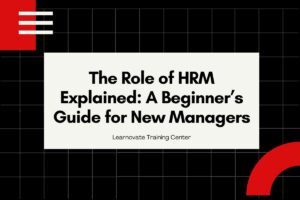If you’re looking to achieve a high score in the IELTS (International English Language Testing System) exam, you’re in the right place! Preparing for IELTS can seem like a daunting task, but with the right strategies and resources, you can score the band you’re aiming for. Whether you’re planning to study abroad, apply for a job, or immigrate to an English-speaking country, a high score in IELTS can open many doors for you. In this article, we’ll cover everything you need to know about preparing effectively for the IELTS exam, with a special focus on how to get a high score.
The IELTS exam is divided into four sections: Listening, Reading, Writing, and Speaking. To succeed in this exam, you need to have a well-rounded skill set, but with a little bit of planning and effort, you can achieve your desired score. We will discuss the best preparation methods, resources, and tips for each of the four sections. Let’s explore how you can prepare effectively and secure a high score in IELTS!
What is the Best Way to Prepare for the IELTS?
The best way to prepare for the IELTS exam varies from person to person, depending on their current English proficiency level, study habits, and available time. However, some universally effective preparation strategies can help you get the high score you aim for.
- Understand the Test Format: The first step to preparing for the IELTS exam is understanding the test format. IELTS consists of four sections: Listening, Reading, Writing, and Speaking. Each section tests different skills and has its structure, so it’s important to familiarize yourself with how each part works. Knowing what to expect will help reduce exam anxiety and improve your performance.
- Create a Study Plan: A study plan is crucial for organizing your preparation. Break down the four sections of the exam and allocate enough time to each. Make sure to balance your time between improving your strengths and working on areas that need more attention. Set clear goals for each week and stick to your plan. Regular practice will increase your confidence and help you stay on track.
- Take Practice Tests: One of the best ways to assess your preparation is by taking practice tests. Full-length mock exams simulate the real test environment and help you manage your time effectively during the actual exam. It also allows you to identify any weaknesses you might have in specific sections, enabling you to focus on improving those areas.
- Work with a Teacher or Tutor: If you prefer personalized guidance, working with an IELTS tutor or teacher can be extremely beneficial. They can help clarify difficult concepts, provide expert feedback on your writing and speaking, and offer valuable test-taking strategies.
- Stay Consistent and Motivated: Preparing for IELTS requires dedication and consistency. Stick to your study schedule and stay motivated throughout your preparation. Celebrate small achievements to keep yourself encouraged, and don’t get discouraged by setbacks. Keep a positive mindset, and the hard work will pay off.
How Do I Score 8.0 in IELTS?
Scoring 8.0 in IELTS is a remarkable achievement and requires a deep understanding of the exam’s requirements. To score 8.0, you need to demonstrate a high level of English proficiency in all four sections. Below are some tips that can help you achieve a band 8.0 in IELTS:
- Listening:
- Focus on understanding the main idea and specific details of the recordings.
- Practice listening to a variety of English accents, such as British, American, Australian, etc.
- Train yourself to listen for synonyms or paraphrases of words used in the question.
- Practice taking notes while listening to improve your ability to identify important information quickly.
- Reading:
- Skim through the passage to get an overall understanding before diving into the questions.
- Focus on keywords and scanning for relevant information.
- Practice different types of reading questions, such as multiple choice, true/false/not given, and matching headings.
- Work on improving your reading speed without compromising comprehension.
- Writing:
- Practice writing essays within the time limit. Focus on structure, clarity, and cohesion.
- Ensure that your essay has an introduction, body paragraphs, and a conclusion.
- Use a variety of sentence structures and vocabulary to show your language range.
- Proofread your essay for grammar and spelling mistakes.
- For Task 1 (Academic), make sure you understand how to describe charts, graphs, and diagrams.
- Speaking:
- Practice speaking English regularly with native speakers or other learners.
- In the speaking test, provide detailed answers and examples to demonstrate your fluency.
- Avoid giving short or irrelevant answers; elaborate on your responses.
- Stay calm and take your time to think before answering.
What Are the Best Resources for IELTS Preparation?
To achieve a high score in IELTS, utilizing the right resources is key. Here are some of the best resources you can use for preparing:
- Official IELTS Materials: The official IELTS website provides free practice materials, including sample questions and test papers. They also offer paid resources, such as IELTS practice books and online courses.
- IELTS Prep Apps: There are numerous IELTS preparation apps available for download on mobile phones. These apps offer practice questions, sample tests, and personalized learning plans. Popular options include the “IELTS Prep App” and “IELTS Test Pro.”
- IELTS Preparation Books: Books like “The Official Cambridge Guide to IELTS” and “Target Band 7” provide in-depth practice tests, model answers, and test strategies. These books are great for self-study.
- Online Courses and Tutors: Websites such as Learnovate, Udemy, Magoosh, and IELTS Liz offer online courses with video lessons, practice exercises, and expert advice. If you prefer personalized guidance, you can find tutors on platforms like iTalki or Preply.
- YouTube Channels: Several YouTube channels offer free IELTS preparation lessons. Channels like “IELTS Official,” “Simon IELTS,” and “Academic English Help” offer useful tips and tricks to improve your skills.
How Do I Prepare My Grammar for the IELTS Examination?
Grammar plays a crucial role in your IELTS performance, especially in the writing and speaking sections. To improve your grammar for the IELTS exam:
- Focus on Sentence Structure: Learn how to form complex sentences using conjunctions and relative clauses. Avoid overusing simple sentences, as it will limit your score in the grammatical range criterion.
- Tense Consistency: Be consistent with the tenses you use. In writing, especially in Task 1, ensure you’re using the correct tense to describe past, present, or future events.
- Use a Range of Grammatical Structures: Avoid using the same sentence structures repeatedly. Instead, practice using different structures, like conditional sentences, passive voice, and direct and indirect speech, to showcase your range.
- Practice Using Modal Verbs: Modal verbs like “can,” “should,” “might,” and “must” are frequently used in both writing and speaking tasks. Make sure you know how to use them correctly in different contexts.
- Take Grammar Tests: Use online resources like Grammarly or Cambridge English Grammar to practice and improve your grammar. Regularly test yourself on different grammar topics to identify areas that need improvement.
How Do I Improve My Reading Skills for IELTS?
Improving your reading skills for IELTS is essential, especially since reading comprehension can be challenging under time pressure. Here are some strategies to boost your reading skills:
- Read Regularly: The more you read, the better your reading skills will become. Read a variety of materials in English, such as newspapers, magazines, novels, and online articles. This will help improve your vocabulary and general understanding of the language.
- Practice Skimming and Scanning: Skimming allows you to get the general idea of a passage, while scanning helps you find specific information quickly. Practice these techniques by reading different types of texts and answering questions based on them.
- Learn New Vocabulary: A rich vocabulary is crucial for answering reading questions accurately. Keep a vocabulary notebook where you write down new words you come across, along with their meanings and examples.
- Time Yourself: The IELTS reading test is timed, so it’s important to practice answering questions within the allotted time. This will help you build your reading speed without sacrificing comprehension.
- Understand Different Question Types: There are various types of reading questions in IELTS, such as multiple-choice, true/false/not given, and matching headings. Practice with each question type to become more comfortable answering them.
Final Thoughts
Achieving a high score in IELTS is possible with the right preparation. By following the above-mentioned strategies and using the best resources, you can effectively improve your skills in all four exam sections. Remember that consistency, practice, and dedication are the keys to success. Take your preparation seriously, and don’t be afraid to seek help from tutors or online resources.
By staying organized, practicing regularly, and focusing on each section of the exam, you will be well on your way to getting the high score you desire. Good luck with your IELTS preparation – with hard work and determination, you’ll be able to achieve your goal














